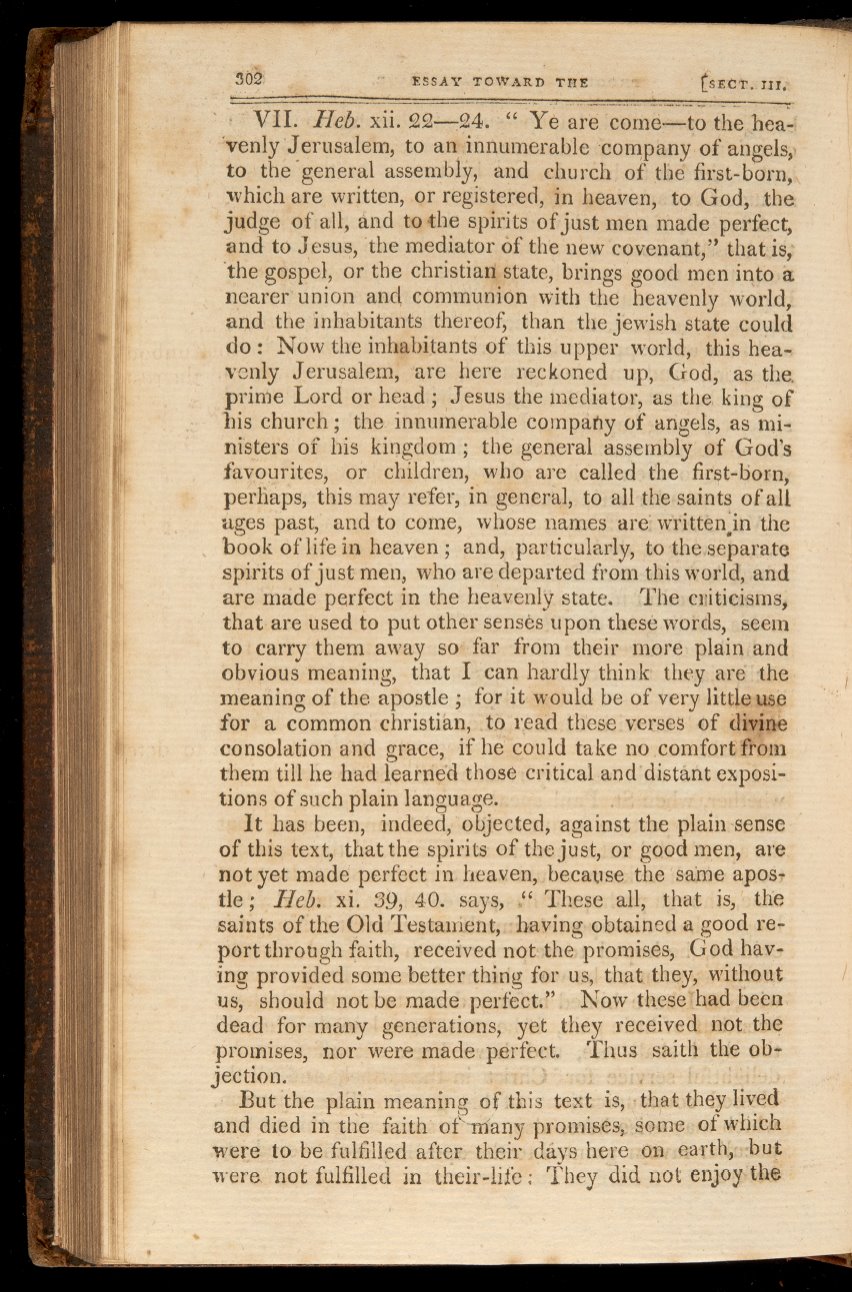

3Ô
ESSAY TOWARD
TIIE
tSECT..IIL'
VII.
Heb.
xii. 22
-24.
"
Ye are
corne
to
the
hea
'venly'Jerusalem,
to an
innumerable company
of
angels,
to the general
assembly,
and
church
of
the
first
-born,
which
are
written,
or
registered, in heaven, to God,
the
judge of
all,
and to
the
spirits
ofjust
men made perfect,
and
to
Jesus,
the
mediator
Of
the
new
covenant," that
is,
the
gospel,
or the christian
state, brings good men
into
à
nearer
union
and
communion
with
the heavenly world,
and
the inhabitants
thereof,
than
the
jewish state could
do
:
Now the inhabitants
of
this
upper
world, this
hea-
venly
Jerusalem, are here reckoned
up,
God,
as
the.
prime Lord
or
head
;
,Jesus
the
mediator,
as
the.
king
of
Es
church
;
the
innumerable company
of
angels, as mi-
nisters
of
his
kingdom
;
the
general
assembly
of
God's
favourites, or
children,
who
are
called the
first
-born,
perhaps,
this may refer,
in
general,
to all
the saints
of
all
ages
past, and
to come, whose names
are
written
in the
book
of
life
in heaven
;
and, particularly,
to the.
separate
spirits of
just
men, who
are departed
from this world,
and
are made perfect
in the heavenly state.
The
criticisms,
that
are
used
to
put other
sensés
upon
these
words, seem
to
carry them
away
so
far from
their more plain
and
obvious meaning,
that
I
can hardly
think
they
are
the
meaning
of
the apostle
;
for
it
would
be
of
very little
use
for a
common
christián,
to
read
these verses
of
divine
consolation
and
grace,
if
he
could
take
no
comfort
from
them
till
he
had learned
those critical
and distant
exposi-
tions
of
such
plain language.
It
has
been, indeed, objected,
against the plain
-sense
of
this text,
that
the spirits
of
the
just,
or
good men,
are
not yet
made perfect
in heaven, becahse the same apos-
tle
;
Heb.
xi. 39,
40.
says, ."
These
all,
that
is,
the
saints
of
the Old
Testament, having obtained
a good
re-
port
through
faith, received
not
the promises,
God
hav-
ing provided
some
better
thing
for
us,
that
they,
without
us,
should
not
be
made perfect." Now
these
had been
dead for
many
generations, yet
they received not the
promises,
nor
were
made perfect.
Thus
saïth the ob-
jection.
But
the plain meaning
of
this text
is,
that
they lived
and
died in
the
faith
of-Many
promises, some
of
which
were
to be fulfilled
after their
dáys here
on
earth,
but
were not
fulfilled in
their
-life
:
They
did
not
enjoy
the

















